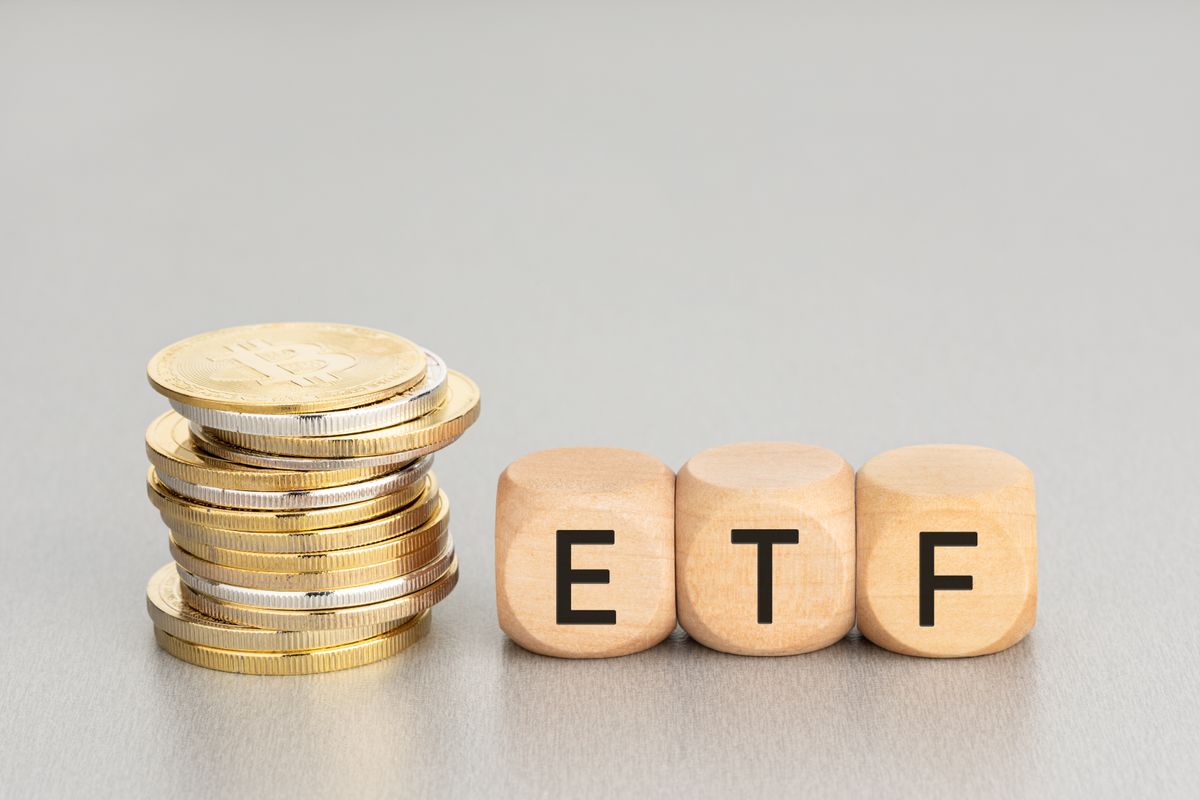All about the Bitcoin ETF

The cryptocurrency market has been buzzing with excitement and anticipation regarding the elusive Bitcoin Exchange-Traded Fund (ETF). Let's take a look at what a Bitcoin ETF is, which entities have filed for one, the current status of these applications, and how the potential approval of a Bitcoin ETF could impact the price and adoption of this leading digital asset.
What is a Bitcoin ETF?
Before we dive into the intricacies of Bitcoin ETFs, let's break down what an ETF is and how it applies to Bitcoin:
Exchange-Traded Fund (ETF): An ETF is a financial instrument that tracks the price and performance of an underlying asset, commodity, index, or a basket of assets. ETFs are traded on stock exchanges, providing investors with exposure to various markets without having to directly own the underlying assets. They offer the diversification of a mutual fund with the tradability of a stock.
Bitcoin ETF: A Bitcoin ETF is an ETF that primarily tracks the price of Bitcoin, allowing investors to gain exposure to Bitcoin's price movements without owning the cryptocurrency itself. It's a way to indirectly invest in Bitcoin through traditional investment channels like stock exchanges.
Who Has Filed for a Bitcoin ETF?
Numerous entities and investment firms have sought approval from the U.S. Securities and Exchange Commission (SEC) to launch a Bitcoin ETF. Some of the notable entities that have filed include:
- Blackrock is an asset management firm with ~$9.4T AUM
- Fidelity offers an array of financial services products with ~$4.5T AUM
- Invesco offers a wide range of investments with ~$1.5T AUM
- Franklin Templeton Investments is a global leader in asset management with ~$1.4T AUM
- GlobalX is a New York based provider of ETFs with ~$45B in AUM
- ARKInvest is a global asset manager with ~$14B
- VanEck Associates: VanEck is a well-known investment management firm with ~$78B AUM.
- Bitwise Asset Management: Bitwise is a cryptocurrency asset manager with ~$1B AUM.
- Grayscale Investments: While Grayscale already offers a Bitcoin Trust (GBTC), the company has also expressed interest in converting its existing Bitcoin trust into an ETF. The trust currently holds ~620K Bitcoins in its trust.
- WisdomTree: WisdomTree is an asset management company with ~$94B AUM.
- SkyBridge Capital: Founded by Anthony Scaramucci, SkyBridge Capital has also filed for a Bitcoin ETF.
- Valkyrie Digital Assets: Valkyrie Digital Assets is another investment firm with ~$1B AUM.
Current Status of Bitcoin ETF Applications
The SEC had been hesitant to approve Bitcoin ETF products due to concerns about market manipulation, fraud, and a lack of investor protection measures in the cryptocurrency space.
However, the cryptocurrency industry and the ETF proponents have continued to refine their applications and present additional data to address the SEC's concerns.
See below some discussion around the questions received on the Bitcoin ETF applications.
I've gotten a lot of questions regarding my current view on Spot #Bitcoin ETFs over the last couple weeks. This is the first section of the note I put out yesterday with @EricBalchunas.
— James Seyffart (@JSeyff) October 13, 2023
TLDR: Our view hasn't changed much https://t.co/dRAm5IsdQf pic.twitter.com/Htsi3n2XxV
How Could ETF Approvals Impact Bitcoin's Price and Adoption?
The potential approval of a Bitcoin ETF is a topic of great interest for both cryptocurrency investors as well as other traditional investors. Here are some ways in which ETF approvals could impact Bitcoin:
1. Increased Accessibility: Bitcoin ETFs would make it much easier for traditional investors to gain exposure to Bitcoin. This could attract a broader range of investors, including institutional and retail participants, potentially increasing demand for Bitcoin.
2. Price Impact: Historically, the introduction of cryptocurrency futures and related financial products has had a significant impact on Bitcoin's price. Approval of a Bitcoin ETF could lead to increased demand and potentially drive the price of Bitcoin higher.
3. Regulatory Oversight: Bitcoin ETFs would be subject to regulatory oversight, potentially making the cryptocurrency market more transparent and secure. This increased regulation could provide a sense of security for investors.
4. Integration with Traditional Finance: The approval of a Bitcoin ETF would signify a greater integration of cryptocurrencies into traditional finance, potentially leading to further acceptance and adoption of digital assets.
5. Simplified Investment: Investing in a Bitcoin ETF is often more straightforward and user-friendly than purchasing and storing Bitcoin directly. This simplicity could attract investors who may have been hesitant to navigate the complexities of cryptocurrency wallets and exchanges.
6. Institutional Participation: Institutional investors, such as pension funds and mutual funds, often have limitations on the types of assets they can hold. A Bitcoin ETF would provide a convenient vehicle for these institutions to add Bitcoin exposure to their portfolios.
7. Diversification: Investors seeking diversification in their portfolios may find Bitcoin ETFs an attractive option, as they provide exposure to a new and non-correlated asset class.
8. Increased Awareness: The approval of a Bitcoin ETF could lead to increased media coverage and public awareness of Bitcoin, potentially driving greater interest and adoption.
However, it's essential to acknowledge that there are risks associated with any investment. Market dynamics, investor sentiment, and regulatory developments all play a role in determining how the approval of Bitcoin ETFs will affect the cryptocurrency space.
What is the Bitcoin Futures ETF
First, let's break down the key components:
1. Bitcoin Futures: A Bitcoin Futures contract is an agreement to buy or sell a specific amount of Bitcoin at a predetermined price on a specific future date. It allows investors to speculate on the price movement of Bitcoin without having to own the actual cryptocurrency.
2. Bitcoin Futures ETF: A Bitcoin Futures ETF offers investors the opportunity to invest in futures contracts linked to the price of Bitcoin. This means that the ETF does not hold actual Bitcoin but rather invests in Bitcoin futures.
Where can I buy Bitcoin Futures ETF
Bitcoin futures ETFs are traded in exchanges and can be bought on an exchange like the NYSE ARCA or NASDAQ.
The following are some Bitcoin Futures ETFs:
- Proshares Bitcoin Strategy ETF (BITO)
- Valkyrie Bitcoin Strategy ETF (BTF)
- VanEck Bitcoin Strategy ETF (XBTF)
- Global X Blockchain & Bitcoin Strategy ETF (BITS)
In conclusion, Bitcoin ETFs hold the promise of opening up the cryptocurrency market to a broader investor base, potentially influencing Bitcoin's price and adoption. The regulatory landscape continues to evolve, and market participants eagerly await further developments in the quest for Bitcoin ETF approval.
As this story unfolds, the cryptocurrency world remains both excited and watchful, anticipating the transformative potential of Bitcoin ETFs.




